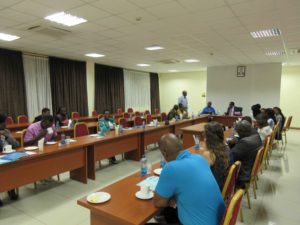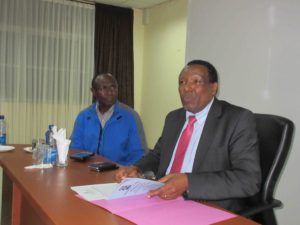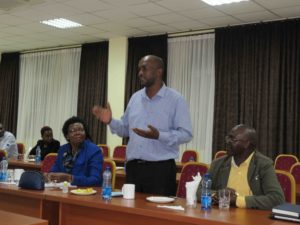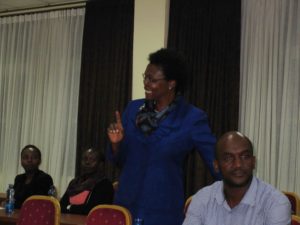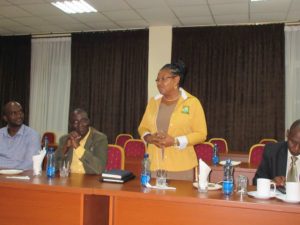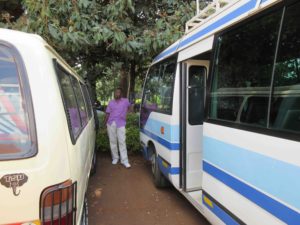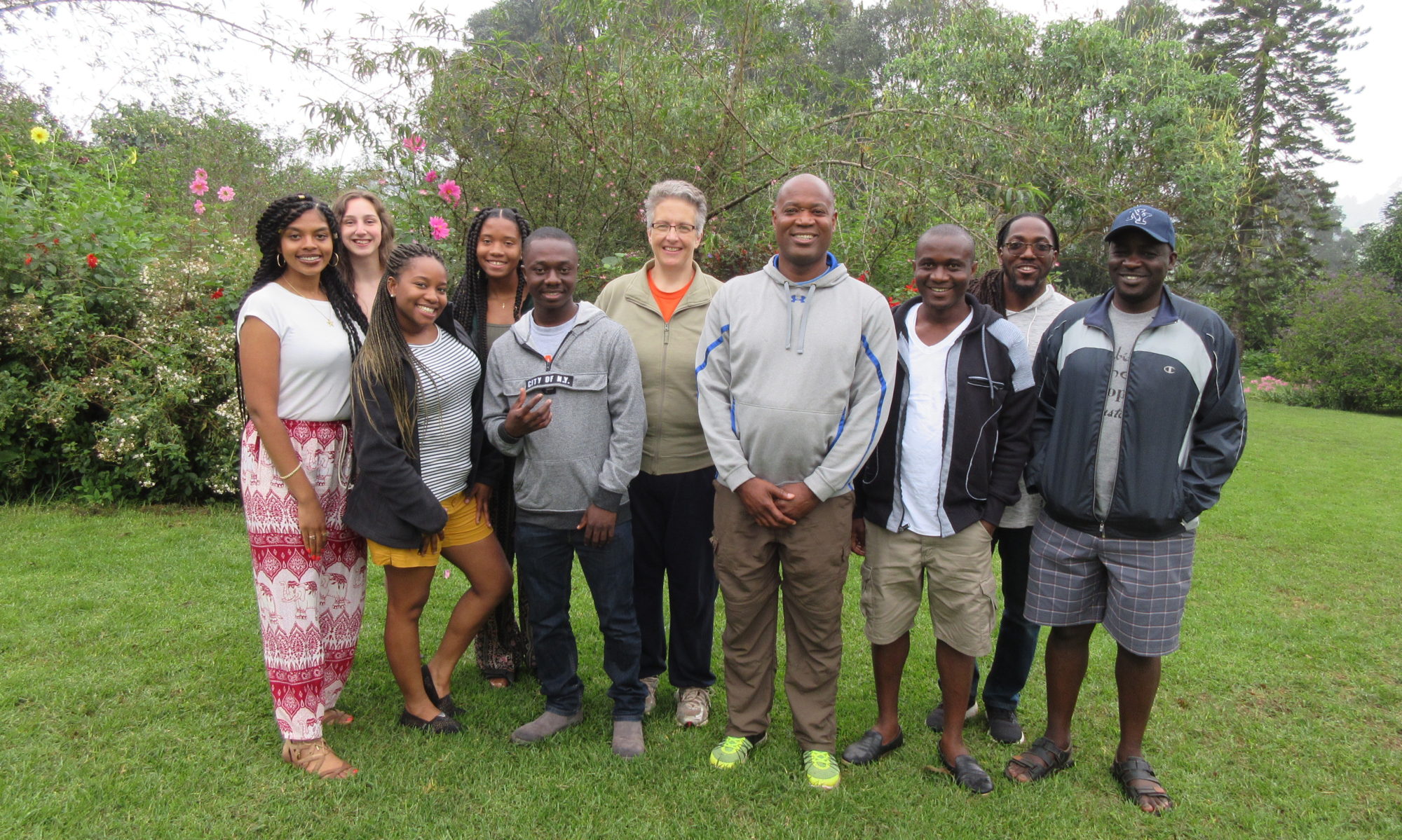Today’s blog post is written by one of the faculty leaders of the study abroad course.
Name: Jeffery A. Mangram
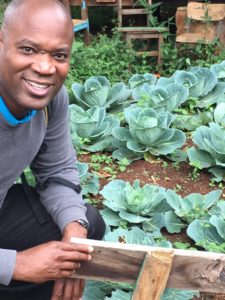
Hometown: Brunswick, Georgia
Position: Associate Professor of Social Studies Education; Director of the Media and Education Program; Provost Faculty Fellow
I am teaching and co-leading the Kenya study abroad experience because I want SOE students (and myself) to broaden and deepen their perspectives about themselves as well as how they come “to know” something about another culture. That is, I want the Kenyan experience to serve as a mirror that motivates us to examine the perspectives we have about ourselves, Kenyan students, Kenyan teachers, education broadly defined, the nation of Kenya, the continent of Africa and the U.S.
Some things I have observed thus far are the tensions around continuity and change that the nation of Kenya is experiencing at many levels. For instance, while the Kenyan Federal Constitution, which was rewritten and adopted in 2010, is a marvelous document that outlines the hallowed principles of governance, individual rights, and rule of law, there is continued political corruption and scandals. Additionally, for instance, the Kenyan national government continues to build their national infrastructure (i.e., national highways, water systems, and railways) while at the same time continuing to conserve vast wildlife sanctuaries and national parks. While the derogatory term “tribe” has been changed to “communities” or “ethnicities” to describe the 43+ communities who have traditionally inhabited Kenya as well as signal positive cohesion and unity, their separateness in terms of community language (dialect), political behavior, and geographical cohesion remains intact. And while the Kenyans gained their independence from the British in 1963, the vestiges of British imperialism are replete, from what side of the road one drives on to the educational system used to educate Kenyan children, from the British-built Parliament where the Kenyan legislature meets to the British-built dormitories where Kenyan students lay their heads at the National schools they attend. Continuity and change. Continuity and change.
I find it interesting that the educational leaders have decided to move from a single, high stakes examination model to a more competency-based model. I say this because the educational leaders are realizing that attaining knowledge alone is not enough. Knowledge needs to be applied, and applied in new and novel ways. Understanding that technological innovations are accelerating all aspects of life has motivated this shift. Additionally, it is interesting that the educational leaders have not outlined the outcomes of the competency based model. What outcomes should be outlined in this ever changing world? Should the outcomes be geared in economic terms? Civic terms? Artistic terms? Ethical terms? Technological terms? What should a Kenyan student be able to know, do, and understand in this ever changing world? These are not easy questions to answer, thus the slow walk on the part of these leaders.
I am looking forward to talking with the SOE students about this experience three or four months from now. What has changed in them? How do they now make sense of U.S. educational systems after this experience? What do they miss about the Kenyan people? How have they applied this experience to their lived U.S. experiences now?
Recap of Today’s Activities:
We were again at Kangaru School today to observe students and teachers. Some of the SOE students and faculty members taught lessons. Some students had an opportunity to explore other areas of the campus. Easton Davis, Isabel Fabre, and I were given a tour of the student dormitories, the cafeteria, and the working farm on the campus.
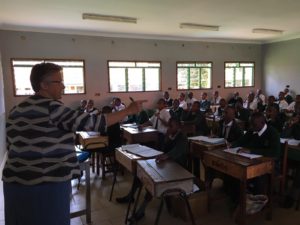
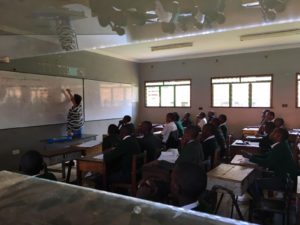
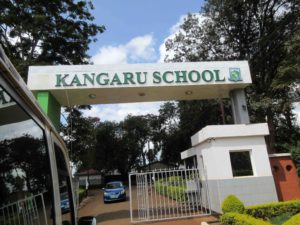
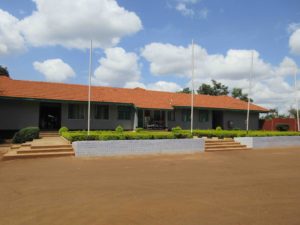
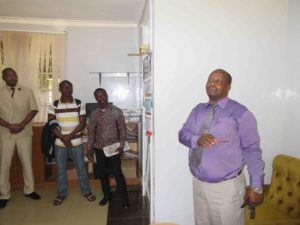
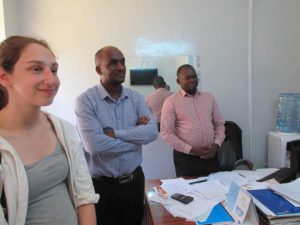
The young men’s dormitories are situated in barrack-style formations or quad-style situations, depending on what year they were constructed. Each dormitory holds 200 young men. There are communal showers and bathrooms. Each young man sleeps in a bunk bed, with the senior student sleeping on the bottom and the junior student on top. Each student has a foot locker in which to place their belongings.
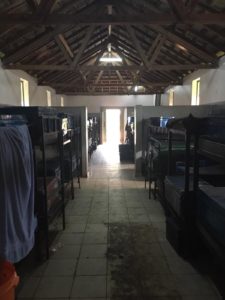
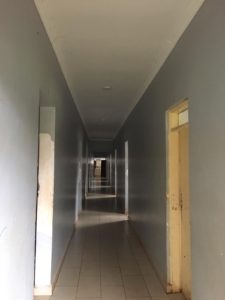
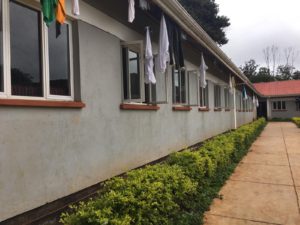
Someone has to feed 1,500 young men and about 100 teachers, staff and administrators. The cafeteria staff is charged with this task. As we visited the kitchen, I observed about 10 huge vats the size of three washing machines used to cook rice and cabbage! Amazingly, all of these vats are fired with cooking wood! The staff have to cook three meals for the young men seven days a week! Next, we visited the bakery, where there were loaves and loaves of bread as well as lots of bread dough to make more!
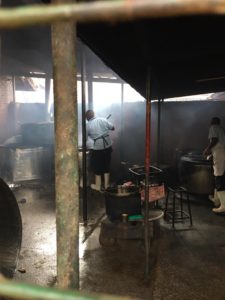
The school has a working farm that we visited. After learning that the national exams requires that every student must pass an Agriculture component in which the student has to prove that they can cultivate and grow a garden of some food, we actually went and looked at some of the cabbage plots that students had grown. Furthermore, we saw fields and fields of maize! The school has cows, chickens, turkeys, and hogs that are used to feed the young men, though the students are not required to care for the animals.
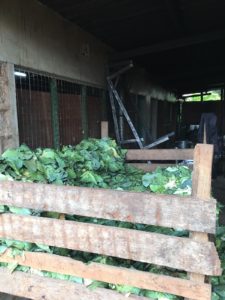
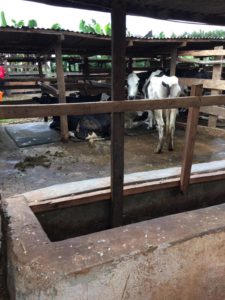
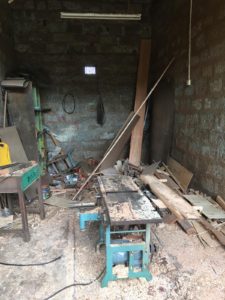
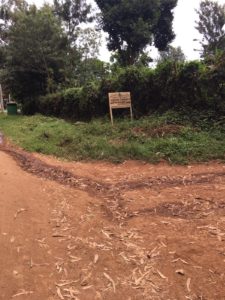
After the tour, I was able to observe a Form 3 (our 11th grade) History class in which the history of Pan-Africanism was discussed. The founder of Pan-Africanism, W.E.B. Dubois’, name was invoked as well as how he assisted in organizing the NAACP. The class discussed why and where the first Pan-African Conference was held. Convened in London in 1900, the first Pan-African Conference aimed to understand the experiences of African people throughout the world, with the goal of mitigating the colonial exploitation and racism that they were experiencing in different contexts.
Finally, after the tea break, I observed Tiffany Hamm, a doctoral student in the Science Education program, teach a biology lesson to Form 1 students on the “Mechanisms of Gaseous Exchanges in the Gills of Bony Fish.” Having the students first engage with specimens of fish gills in a petri dish, Tiffany encouraged the students to enumerate things they observed about the gills and what questions they had about them. Next, using an interactive lecture, Tiffany guided the students through the gaseous exchanges that occur with a fish in water. Tiffany posed numerous questions as she explained various processes, encouraging the students to ask and answer their own questions. At times, she asked the students to make connections with previous lessons. She showed a YouTube video of a fish breathing to underscore the gaseous exchanges that were occurring. She ended the lesson by circling back to the very questions the students generated at the beginning of the lesson. The students now answered these questions based on the information they gained from the lesson. Kudos to Tiffany for teaching such a fantastic lesson! ‘Cuse in Kenya contributing!
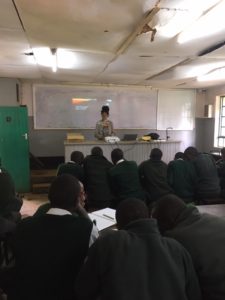
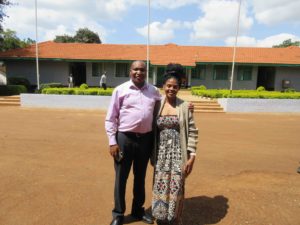
In the evening, we were hosted at the University of Embu by Vice Chancellor Professor Daniel Mugendi. There were remarks by Prof. Mugendi, Dr. Peter Rugano, Dr. Ciriaka Gitonga (Dean of the School of Education and Social Sciences), the Syracuse University team, Prof. Kiplagat Kotut (Deputy Vice Chancellor for Academic Affairs, Research, and Extension), and Prof. Eucharia Kenya (Deputy Vice Chancellor for Planning, Administration, and Finance). As always, we are thankful for the skilled driving of our bus driver, Nafton.
